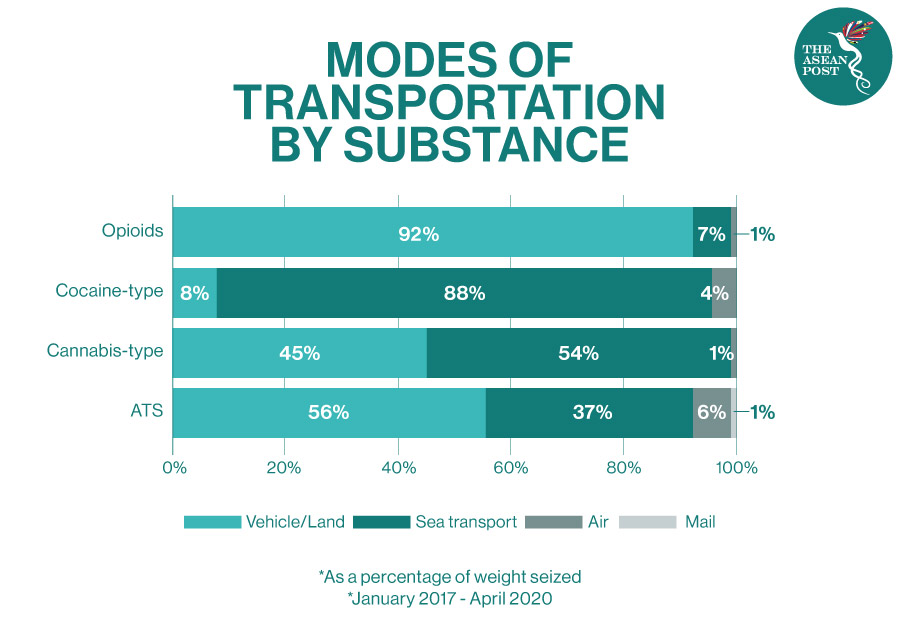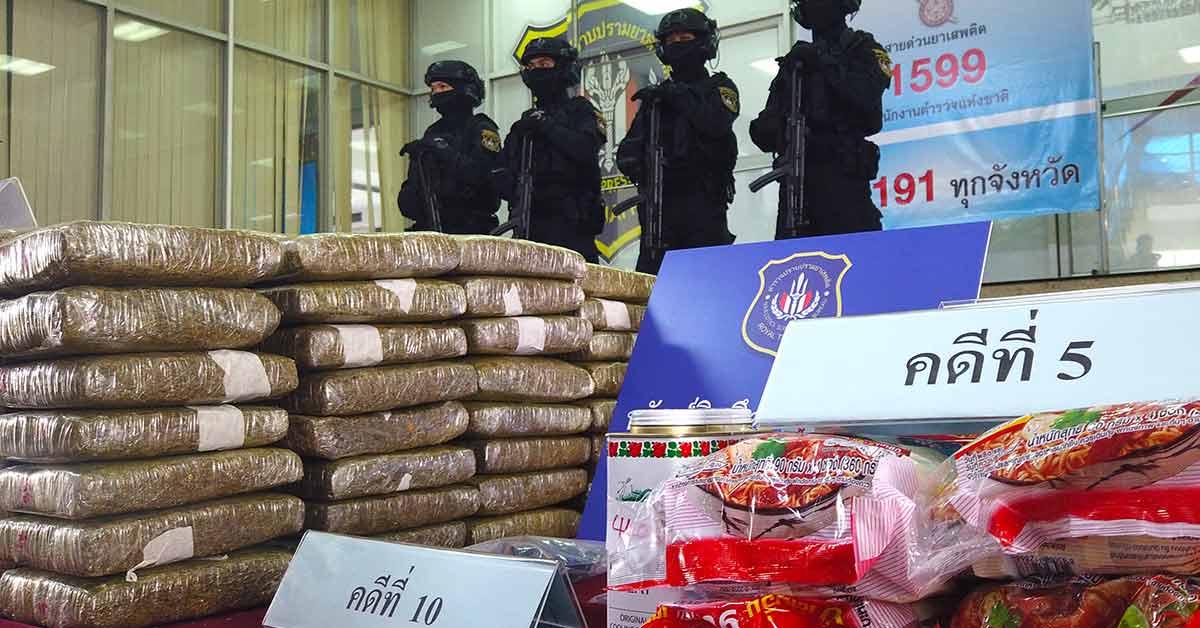The trade in drugs has always been recognised as a global issue since the beginning of the 20th century. While all eyes are currently on the COVID-19 pandemic which has ravaged livelihoods and the economy, there are now more people using drugs, substances and types of narcotics than ever, said Ghada Waly, Executive Director for the United Nations (UN) Office on Drugs and Crime (UNODC).
According to an UNODC report released last month, the organisation warned that drug production and trafficking in the East and Southeast Asia region had grown unabated and uncontrolled.
"It is hard to imagine that organised crime has again managed to expand the drug market, but they have," said Jeremy Douglas, UNODC Representative for Southeast Asia and the Pacific.
Seizures of meth in the region have increased over the years in the past decade – more than can be seen in any other part of the world. Drug trade in the Golden Triangle – a region where the borders of Myanmar, Lao and Thailand meet – is booming thanks to an increase in transnational organised crime groups operating, manufacturing and trafficking methamphetamine and other drugs in the region.
Trafficking Across Borders
Drug trafficking relies heavily on legal trade to camouflage its activities and on individuals to distribute drugs to consumers. Strict virus measures such as citywide lockdowns and shuttered borders imposed by governments to contain the coronavirus have inevitably affected all aspects of the illegal drugs market, from production and trafficking of drugs to their consumption, stated the UNODC.
Given the almost universal restrictions imposed on air traffic amid the crisis, the supply of drugs by air may be completely disrupted.

Nevertheless, the UNODC stated that organised criminal groups react adaptively to market changes. Past experience has shown the capacity of such groups to rapidly adapt their modus operandi or switch markets in response to shocks or new opportunities.
“The rapid adaptation of organised criminal groups to new environments has already been reported in some Balkan countries where certain organised criminal groups involved in drug trafficking are moving into forms of crime linked to the COVID-19 virus, such as cybercrime and trafficking in falsified medicines,” the United Nations stated in its report.
According to the UNODC Drugs Monitoring Platform, cocaine-type drugs are predominantly seized at sea (maritime transport) in contrast to opiates, which are mostly seized in vehicles. Whereas synthetic drugs are typically trafficked by air with some countries being supplied with certain substances almost exclusively by air couriers.
The COVID-19 pandemic could push traffickers to change their tactics and shift trafficking routes and modes. The UNODC believes that the disruption to air trafficking may be replaced where possible by drug distribution by mail.
Other than that, the UNODC cited increased use of maritime routes to traffic heroin to Europe, the trafficking of large shipments of cocaine by alternative means and stockpiling of drugs to be some of the impacts of the pandemic on drug trafficking.
Thailand's Deputy Secretary-General of the Narcotics Control Board, Paisith Sungkahapong told the media that the pattern of drug trade on the consumer level can also be seen moving to online social media platforms as virus restrictions limit people’s movement.
"We have found the increase in the online drug trade via Facebook, Twitter, Instagram and also we found a lot of drugs being concealed and transported to buyers via the postal, public and private services," he explained.
Drug Abuse
Another effect of the COVID-19 pandemic – enforced lockdowns – has increased the demand for cannabis products, which could intensify drug trafficking activities. The UN revealed that the coronavirus crisis has inadvertently led to more people using drugs all over the world.
"The COVID-19 crisis and economic downturn threaten to compound drug dangers further still, when our health and social systems have been brought to the brink and our societies are struggling to cope," said the UNODC’s Ghada Waly.
Based on the latest World Drug Report released by the organisation, an estimated 269 million people used drugs in 2018, up from 30 percent, while over 35 million people suffer from drug use disorders. The report also stated that cannabis was the most used substance in 2018, with about 192 million users around the world. Whereas opioids are the most harmful, as the number of deaths due to opioid-related disorders went up 71 percent over the last 10 years.
The pandemic has left many without jobs and sources of income. The UNODC noted that reduced opportunities and rising unemployment are likely to have a greater impact on the poorest – making them more vulnerable to drug use, drug trafficking and cultivation in order to earn money.
Related Articles:
